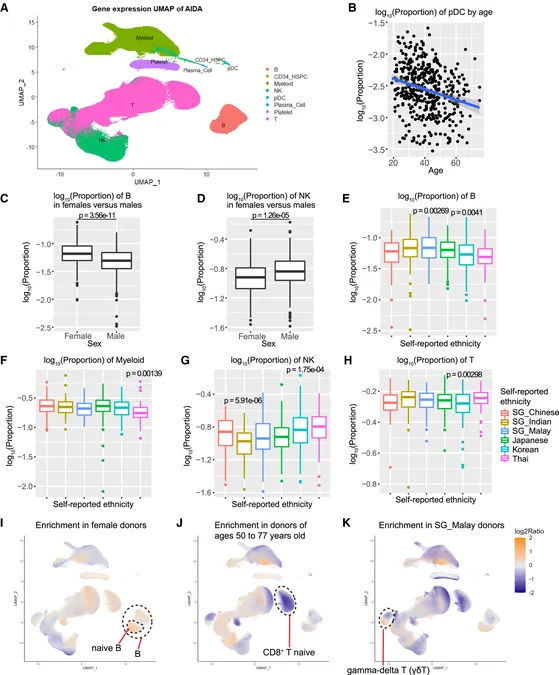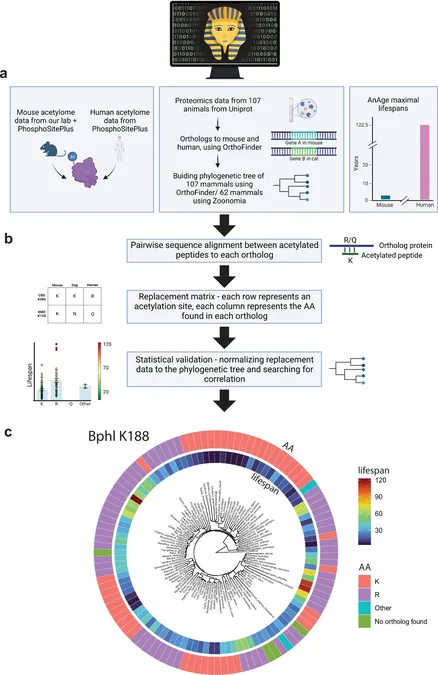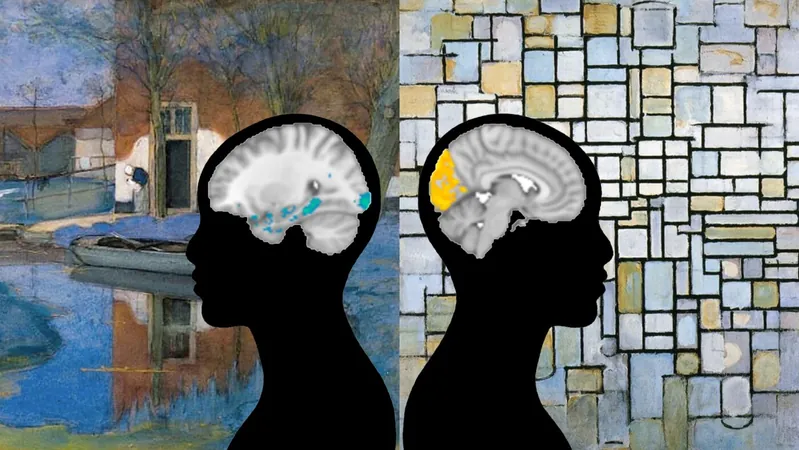
Breakthrough in Precision Medicine: Scientists Unveil First Immune Cell Atlas for Asian Populations
2025-04-08
Author: Wei
Researchers from Singapore's A*STAR Genome Institute, alongside teams from South Korea, Japan, Thailand, and India, have accomplished a groundbreaking feat by creating the World’s First Asian Immune Diversity Atlas (AIDA). This extensive multi-national survey of human blood at single-cell resolution promises to significantly enhance the field of Precision Medicine.
Published in the prestigious journal Cell in March 2025, this landmark study could revolutionize the way diseases are diagnosed and treated in Asian populations, leading to the development of next-generation diagnostics and therapeutics specifically tailored for them.
Revolutionizing Our Understanding of Immunity
The study's exploration of human immune cells provides vital information for diagnosing and managing various diseases, including infectious diseases, autoimmune disorders, and blood cancers. Currently, clinical practices utilize immune cell proportions to identify conditions like tuberculosis and leukemia.
Thanks to recent advancements in single-cell genomics, researchers can meticulously analyze individual cells, allowing for unprecedented accuracy in diagnosing and formulating targeted treatments. For instance, the identification of unique immune signatures related to lupus or predicting how different cancers will respond to immunotherapy is now feasible.
However, it's crucial to note that existing diagnostic tools predominantly utilize data from European populations, which often fail to accurately reflect the health profiles of Asian individuals. Variations in age, sex, genetics, lifestyle, and environment highlight the pressing need for tailored diagnostic approaches based on comprehensive data from Asian demographics.
Profiling Immune Diversity Across Asia
To fill this significant knowledge gap, the AIDA consortium has meticulously profiled the healthy immune systems of diverse Asian groups. Employing cutting-edge single-cell genomics methods, the researchers examined over 1.2 million immune cells from blood samples of 625 healthy individuals across five different Asian countries. AIDA marks a flagship initiative within the Asia network of the international Human Cell Atlas (HCA) consortium, which aims at creating detailed reference maps of human cells to bolster disease diagnostics and treatments.
The AIDA research team successfully established healthy immune reference ranges for various Asian ethnicities, including Singaporeans, Chinese, Malays, and Indians. They investigated the influence of ethnicity, age, and sex on immune cell proportions and gene expression. Findings revealed that self-reported ethnicity impacts blood cell proportions almost as much as sex, underscoring the complexity of immune responses among different ethnic groups.
Furthermore, the study uncovered that certain cell types and gene products were found in much higher levels—up to 8 times greater—in specific populations, potentially refining the biomarkers used for disease diagnosis and risk prediction. This data could illuminate the unique molecular properties of Asian populations, ultimately aiding in understanding genetic bases for infectious and autoimmune diseases and variations in disease susceptibility.
Notably, AIDA is a freely accessible resource, available on platforms like the Chan Zuckerberg Cell by Gene website and the HCA Data Portal, empowering researchers and clinicians to develop more personalized diagnostic and therapeutic strategies that suit the needs of Asian patients.
Collaborative Efforts Towards Precision Health in Asia
The collaborative essence of the AIDA project illuminates an essential shift in biomedical research focus, advocating for the inclusion of diverse populations historically overlooked.
Dr. Shyam Prabhakar, Associate Director at A*STAR GIS and senior author of the study, indicated, "In the next phase of research, we plan to expand the AIDA resource and extend our single-cell genomics analysis to Asian patients, particularly in Singapore. AIDA is set to be a cornerstone for enhancing Precision Medicine initiatives throughout Asia and beyond.”
Dr. Jay Shin, who leads a team at RIKEN in Japan, noted the significance of this collaboration, highlighting the momentous nature of bringing together diverse investigators from across Asia for world-leading research.
Dr. Park Woong-Yang from Samsung Medical Center emphasized that the historic focus on European ancestries within biomedical studies has left a gap in understanding the biomedical properties applicable to non-European populations.
Dr. Alexandra-Chloé Villani, affiliated with the Broad Institute, lauded the study as a pivotal step toward fulfilling the mission of creating a comprehensive human cell reference map that’ll transform healthcare and medicine worldwide.
This groundbreaking research not only paves the way for innovative and precise healthcare solutions but also signals a new era in understanding the immune systems of diverse populations globally.




 Brasil (PT)
Brasil (PT)
 Canada (EN)
Canada (EN)
 Chile (ES)
Chile (ES)
 Česko (CS)
Česko (CS)
 대한민국 (KO)
대한민국 (KO)
 España (ES)
España (ES)
 France (FR)
France (FR)
 Hong Kong (EN)
Hong Kong (EN)
 Italia (IT)
Italia (IT)
 日本 (JA)
日本 (JA)
 Magyarország (HU)
Magyarország (HU)
 Norge (NO)
Norge (NO)
 Polska (PL)
Polska (PL)
 Schweiz (DE)
Schweiz (DE)
 Singapore (EN)
Singapore (EN)
 Sverige (SV)
Sverige (SV)
 Suomi (FI)
Suomi (FI)
 Türkiye (TR)
Türkiye (TR)
 الإمارات العربية المتحدة (AR)
الإمارات العربية المتحدة (AR)